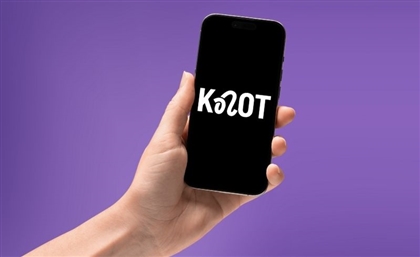How UAE’s Prop-AI is Making Real Estate Investment Easy & Accessible
Founder Ranime El Skaff looks to use cutting-edge technology to make real estate accessible to the average consumer.

With macroeconomic challenges impacting the MENA region, as well as the globe, people have been flocking to real estate as one of the few safe havens to hedge against economic uncertainty. That’s why Ranime El Skaff decided to launch Prop-AI in early 2022 to make it easy for people to own and buy properties, starting with Dubai.
Using AI, the startup gathers relevant data to determine fair market value, potential appreciations and return on investments (ROI), among other factors, enabling buyers to make sound investment decisions based on their preferences and goals.
Having spent a significant part of her career working at one of the world’s largest consulting firms, McKinsey & Company, El Skaff decided to bring her financial and analytical experience to the real estate market. “As a Lebanese woman, with all of the craziness that happened with our currency, real estate is always a solid investment, or at least, it is less risky,” El Skaff tells StartupScene. “You get a little bit of comfort in doing this. It is an investment that should be easy to do.”
While the startup officially began operations earlier this year, it has already doubled the number of deals compared to the first three months since launching. Looking to the future, it plans to continue growing in Dubai and enter another market next year, as part of its global expansion goals.
ALL ABOUT THE DATA

It is often said that AI is only as good as the data it is trained on. Feeding the machine with information helps AI make predictions and recommendations, which in turn support businesses to make effective decisions. But if you feed it with poor data, its outputs can become not only unreliable, but also unusable. As El Skaff says, “It’s garbage in, garbage out.”
It is for this reason that the startup ensures that it uses accurate and complete data, and continuously reviews and updates it. “You really don't want to put bad data into your model,” El Skaff adds. “You want to put very good data in order for you to get good results. And it's a continuous effort. It never ends. Every week or so you discover how it could be better. How do I interpret it better? How do I go back and fix it? It's a constant learning process, but you do need a certain level of baseline and understanding. So, you clean outliers and remove data that doesn't make sense.”
By inputting the right data, the startup allows buyers to invest faster and smarter. With the help of AI, it can process market listings, analyze them and give it a score based on a buyer’s investment goals.
This process happens in seconds. Once a relevant listing is curated, the startup’s advisors are then available to support potential buyers in arranging mortgage providers, scheduling viewings, and guiding them in the bank inspection process.
BECOMING LEAN

Like many startups, fundraising can be difficult, especially if it takes place during the VC winter, which made up most of 2023. Yet, the funding crunch presented Prop-AI with the opportunity to become lean and focus on profitability. The startup was able to build the product economically and create a small, but strong team all while being agile and flexible to changing market conditions. “We went to the market with probably a quarter of what it cost us than if we had a lot more money,” El Skaff says. “It was a good challenge, but hopefully we're getting out of this very soon.”
While the funding winter may be nearing its end, the proptech sector was especially hard hit last year. In 2023, investments in MENA’s proptech reached only $69 million, compared to $101 million the previous year, according to Wamda. This represents an almost 32% drop in funding value.
The investment landscape this year so far seems to be muted. While the number of investors in MENA rose by 30% in H1 2024, the region experienced a 34% YoY drop in funding, according to Magnitt. As usual, the sectors that received the most funding was ecommerce, while fintech received the most deal count.
LOOKING TO THE FUTURE

To continue growing and becoming profitable, Prop-AI aims to diversify its revenue streams. To date, it has two revenue streams: buyer broker fees and monetizing data. “We're on the journey of monetizing our data,” says El Skaff. “The stronger the data gets, the easier it is for us to sell it. Almost 10% of our revenue comes from that.”
It also plans to integrate international payments on its platform in the next few years to diversify and increase its sources of income.
For now, though, El Skaff is focusing on growing the startup in Dubai, getting more clients on board and closing more deals before entering a new market next year. “We want next year to be in another city or two, whether it's in this region or outside region. But definitely our plan is to go to another city and establish what we have accomplished here elsewhere.”
- Previous Article UAE VAT Law Amended to Exempt Fund Management & Virtual Assets
- Next Article How Ejari is Disrupting the Real Estate Sector in Saudi Arabia
Trending This Month
-
Jan 19, 2026






















